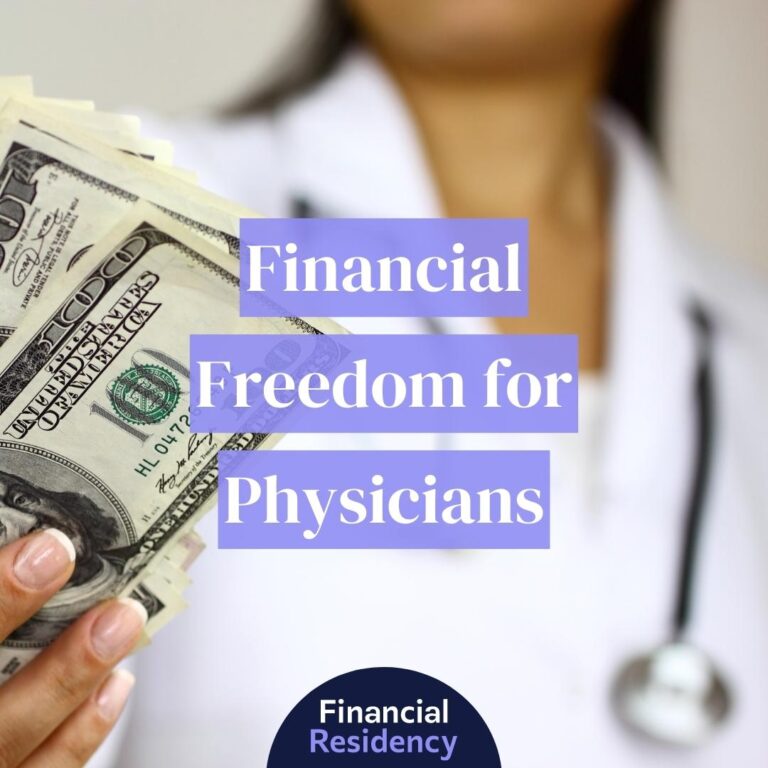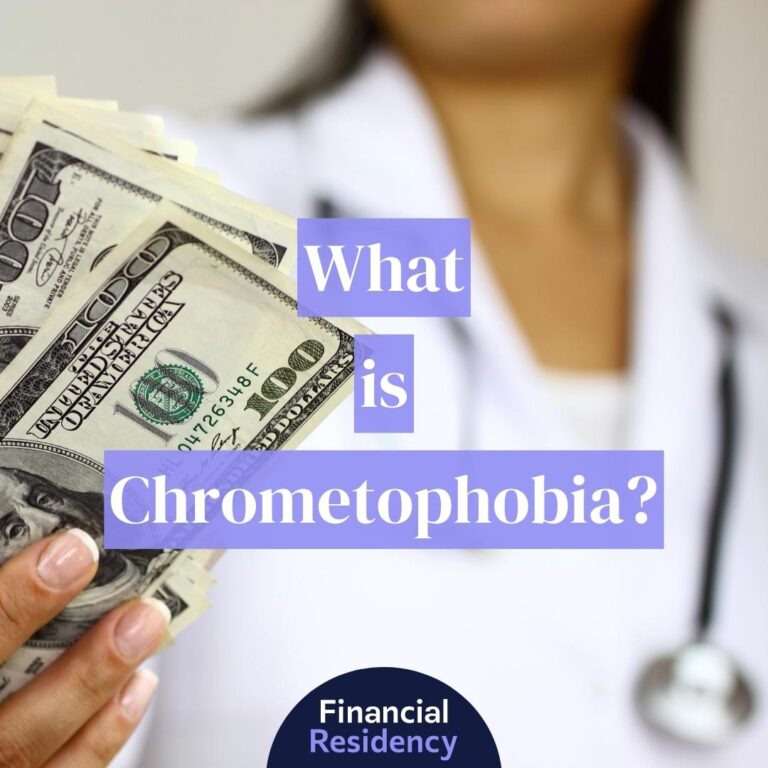It’s hard to find quality financial advice that is specific to physicians and student debt. That’s one of the reasons I started my firm, Physician Wealth Services.
It’s also why I was so angry when a client sent me this clip from the Dave Ramsey show where a young doctor called in and got terrible advice.
If you’re not familiar with Dave Ramsey, he’s one of the most successful financial experts in America today. He has a nationally syndicated radio show, a pile of bestselling books, and a flourishing company located in Nashville with over 600 employees.
Unfortunately, despite all of his accolades, he gave terrible advice to a physician who called in to his show asking for help. Not only that, but he was pretty rude to him too.
The Background
On the clip, a physician named Rodrick from Pittsburg called and asked for advice about his $670,000 debt load.
He’s a family medicine resident married to a psychiatry resident. According to the call, this number includes combined debt for both of them from medical school, graduate school, and undergrad.
As residents, they have a combined $108,000 household income. When they graduate from residency, they have a projected $400,000 household income.
However, Dave questioned his ability to get $200,000 a year in family medicine. He thought his income would be 25% lower. (Depending on where they ultimately live, though, geographic arbitrage is very real and could be used in their advantage.)
“What a mess!”
This is one of the first phrases Dave said when he learned about Rodrick’s debt load.
First, c’mon Dave. Don’t be an a**hole. While I don’t agree with why Rodrick actually looks to you for advice, Rodrick is calling in for some advice to get his family going in the right financial direction.
The over-exaggeration might be great for “show,” but this is someone’s life, and he should be treated with some respect.
While a non-expert in physician finance (which is exactly what Dave is) would be “disgusted, confused and in panic mode” over the amount of student debt Rodrick has, this is more of the norm compared to a physician without student debt.
In fact, the average amount of debt my physician clients have is roughly $200,000 – $300,000. Rodrick’s situation, while not ideal, is not a “mess.”
How I View Student Loan Debt
I view student debt a bit different than most. I look at is as the cost of buying a business. The business just happens to be your brain.
Let’s use Rodrick’s numbers, but let’s cut them in half (only talking about Rodrick, not his wife) for the sake of simplicity. If Rodrick’s income was $200k ($120k after taking out 40% in taxes as an estimate) and his student debt was $335k, he essentially paid $335k for $120k of after tax revenue per year. He paid roughly 3 times the annual income for the ability to earn the future income for the next 30 years.
While it wouldn’t be possible to use 100% of the after tax revenue to pay down debt (you still need to account for expenses – in Rodrick’s case – living expenses), it is possible to allocate a large portion of the income to paying down this debt.
It’s reasonable that a small, profitable business have a valuation multiple of 2.5 to 4.5. That would mean that if we looked at Rodrick’s numbers as a small business, it would be perfectly normal to pay $300k (120k*2.5) and $540k (120k*4.5) for the business.
With his student debt totaling $335k, it is well within the range of a valuation of a healthy small business valuation. Those that are heavily into finance will not like this simplicity, but I’m trying to keep it simple for illustration purposes.
“Live like college students until this is gone. I don’t care what your income is.”
This is another piece of advice Dave gave Rodrick. And, for the most part, I agree with Dave here.
As long as they have outstanding debt, it will be more difficult to live and achieve their life’s dream and possibilities. The debt burden, while not impossible, will make it more of a challenge to be financial successful/independent the longer it is in existence.
I don’t think that they need to “live on nothing and then pay everything above nothing towards this disaster” like Dave said.
After all, you have been through medical school and residency; you know what it is like to live off very little while working insane hours. You have grown accustomed to delayed gratification, and I know you want to splurge on a few things that you couldn’t afford before once you start making a real salary.
I get it; my family has been there. In moderation, it is ok to upgrade your life a bit, but DON’T go overboard. It’s a slippery slope, and its very hard to correct if you get used to spending a ton of your income right out of training.
Don’t become a victim of your own success. Keep your spending in check, and plan on paying down your debt in a reasonable amount of time (no more than 10 years from finishing residency).
“If you are making more than 400k a year, you wont need an emergency fund.”
This is another piece of advice from Dave that’s pretty scary, especially because Dave doesn’t know everything about their financial picture.
I strongly believe in having an emergency fund regardless of your total income. Having an emergency fund doesn’t mean all the money has to be sitting in the bank earning next to nothing interest. You can invest it.
Unexpected expenses come up, so it’s better to have cash on hand vs. racking up credit card balances. You might think you won’t rack up credit card debt with a $400,000 annual income, but I’ve seen it happen.
Emergency funds are necessary, regardless of income level. Period. You don’t know what the future has in store, so why not keep some funds aside just in case?
“Eek. Don’t want you operating on me.”
This is perhaps the most ridiculous thing Dave said on the clip. Don’t worry, Dave the “expert.” I don’t anticipate a family med doctor and psychiatrist operating on you any time soon…




